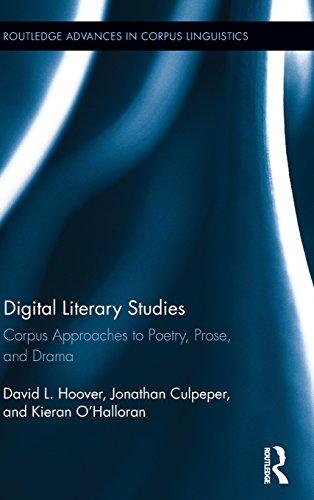

Most ebook files are in PDF format, so you can easily read them using various software such as Foxit Reader or directly on the Google Chrome browser.
Some ebook files are released by publishers in other formats such as .awz, .mobi, .epub, .fb2, etc. You may need to install specific software to read these formats on mobile/PC, such as Calibre.
Please read the tutorial at this link: https://ebookbell.com/faq
We offer FREE conversion to the popular formats you request; however, this may take some time. Therefore, right after payment, please email us, and we will try to provide the service as quickly as possible.
For some exceptional file formats or broken links (if any), please refrain from opening any disputes. Instead, email us first, and we will try to assist within a maximum of 6 hours.
EbookBell Team

4.0
96 reviewsDigital Literary Studies presents a broad and varied picture of the promise and potential of methods and approaches that are crucially dependent upon the digital nature of the literary texts it studies and the texts and collections of texts with which they are compared. It focuses on style, diction, characterization, and interpretation of single works and across larger groups of texts, using both huge natural language corpora and smaller, more specialized collections of texts created for specific tasks, and applies statistical techniques used in the narrower confines of authorship attribution to broader stylistic questions. It addresses important issues in each of the three major literary genres, and intentionally applies different techniques and concepts to poetry, prose, and drama. It aims to present a provocative and suggestive sample intended to encourage the application of these and other methods to literary studies.
Hoover, Culpeper, and O’Halloran push the methods, techniques, and concepts in new directions, apply them to new groups of texts or to new questions, modify their nature or method of application, and combine them in innovative ways.